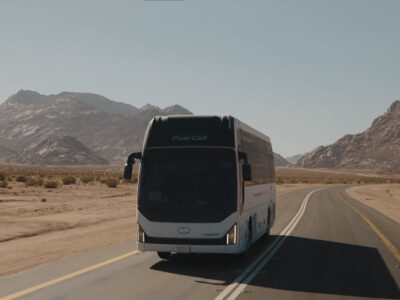The CEO of Saudi Arabia’s low-cost airline Flynas has admitted that securing a circa $7 billion deal with Airbus or Boeing to acquire upwards of 60 new planes to meet expansion plans will be a challenge – in part because production slots are full.
Flynas is in talks with the two manufacturers for a potential 100-aircraft order – it had earlier ruled out a possible deal with Bombardier as it did not want to be the launch customer for its new C Series jet.
In an interview with Arabian Business, Flynas CEO Paul Byrne said the order would be for an initial 60 planes with an option for 40 more at a later stage.
The airline plans to expand domestic routes within Saudi Arabia and increase the frequency of flights elsewhere in the GCC. It also wants to launch new routes to Oman, Bahrain and east Africa, where it does not currently operate.
At present, Flynas has a leased fleet of 26 jets (all A320s) and, according to Byrne, will have 28 in the coming weeks and 30 by the end of the year under prearranged deals.
However, Byrne said the company would need four new planes each year for the next five years if it is to meet its growth objectives.

Paul Byrne, CEO of Flynas.
“Typically our current planes are on six-year leases and many of those are coming to an end,” he said. “Put it this way, we have to replace the whole fleet in six years tops otherwise we have no planes.
“But this will be a challenge. For one, the cost of restoring these planes to their [pre-leased] condition is high and requires budget, and, second, we understand Boeing and Airbus production slots are full for the next four years.”
He said if an order with one of the manufacturers goes ahead this would be “a phenomenal deal”, as the catalogue value of each A320 is around $70 million.
Byrne would not detail how the company intends to finance the deal, but said talks with banks were ongoing at present and Flynas’ main shareholders had “strong credentials” to secure requisite funding.
An expanded fleet would contain a mix of leased, purchased and sale-and-leaseback jets, Byrne added.
Meanwhile, the CEO played down suggestions that the kingdom’s new budget carrier, Flyadeal, announced by ministers earlier this month and intended to start operating in mid-2017, could become a rival, or threat, to Flynas.
“I’ve been saying for years we need more competition in the domestic market,” he said. The new airline plans to operate 25-50 planes by 2020, obtained via new leasing agreements or from sister airline Saudi Arabian Airlines (Saudia), Saudia’s director-general Saleh al-Jasser told reporters at the ATM travel conference in Dubai.
Byrne added that the FlyDubai crash “sent shockwaves through industry” and that Flynas was keeping abreast of any new safety regulations that are introduced as a result. “[Aviation safety] is not something you play around with,” he said.
Flynas’ planned expansion will focus on serving the Muslim world, in particular meeting needs of pilgrims and business travellers, according to Byrne. This year’s growth will predominantly include new and more routes within Saudi Arabia – “last year was a big year of new routes for us, so this year it will mainly be about increasing frequencies,” he said.








